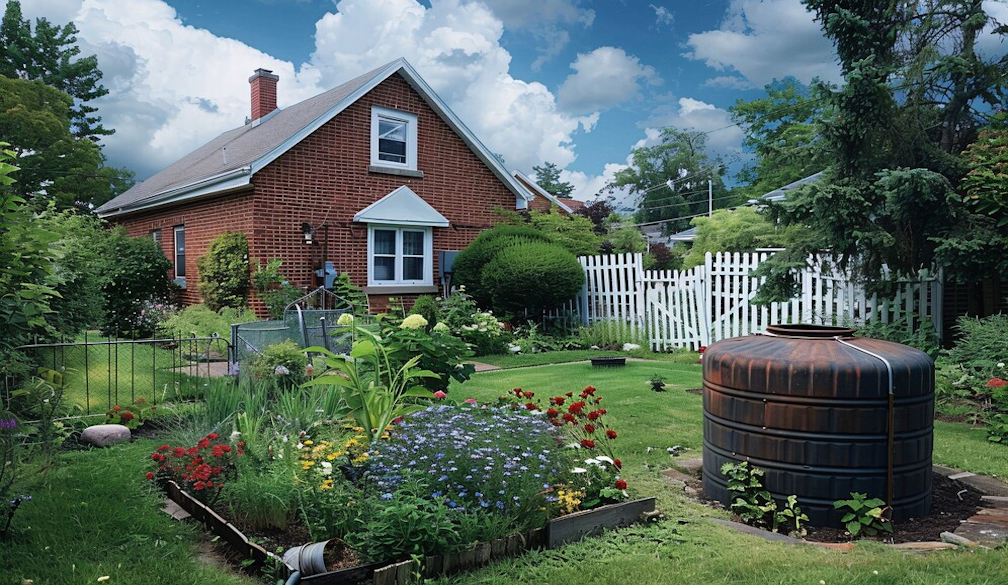The Many Benefits of Water Tanks: Sustainable Living Made Simple
- Written by Sky Digital

Australia is known for its diverse landscapes and climates, ranging from lush rainforests to arid deserts. One thing that unites all corners of the country is the importance of water conservation. With droughts becoming more frequent and environmental awareness on the rise, many Australians are looking for sustainable solutions to reduce their water consumption. Enter the humble water tank—an essential tool for anyone wanting to capture and store rainwater for everyday use.
In this blog, we’ll explore some unexpected and fun ways water tanks can make a real difference in your life, going beyond the obvious gardening and outdoor irrigation purposes. Whether you live in the city or the countryside, installing a water tank can provide numerous benefits for both your household and the environment.
1. Water Tanks for Your Home’s Interior
When people think of water tanks, they often think of outdoor uses like watering the garden or washing the car. However, water tanks can also play a critical role inside the home. You can connect a tank to your plumbing system to use rainwater for flushing toilets, washing clothes, or even for household cleaning.
Using rainwater for these tasks can significantly reduce your water bills while still providing high-quality water for non-potable uses. Since water tanks can be installed above or below ground, they can seamlessly integrate into your home's existing system without disrupting your daily routine.
2. Perfect for Filling Up Your Pool
Have a swimming pool? Water tanks are a great way to keep your pool full without tapping into the mains water supply. Pools lose water due to evaporation, splashing, and maintenance, especially during the hot Australian summer months. Using stored rainwater to top up your pool can save you money while ensuring that your pool stays at the perfect water level all year long.
If you're installing a new pool, you could even plan ahead by integrating a water tank specifically for this purpose. Imagine having a fully sustainable system where your pool stays topped up purely with collected rainwater—how cool is that?
3. Eco-Friendly Vehicle Washing
Rainwater from your tank is perfect for washing cars, bikes, and other vehicles. It's not only a great way to save water but also better for your vehicle. Unlike tap water, rainwater is naturally soft, meaning it contains fewer minerals that could leave streaks or water spots on your vehicle. You won’t need as much soap or cleaning products to get a sparkling finish, which reduces your environmental impact even further.
You could even set up a small “car wash station” in your backyard, making vehicle cleaning more convenient and sustainable.
4. Water Tanks in Bushfire-Prone Areas
Living in a bushfire-prone area can be stressful, especially during the hot, dry season. Having a water tank can provide an additional safety net for homeowners. By storing rainwater, you’ll have an independent water supply that can be used to protect your home and garden during fire emergencies. Many rural and semi-rural properties use water tanks specifically for this purpose, ensuring they have the resources to fight fires if needed.
Water tanks can be connected to hoses or even sprinkler systems around the home’s perimeter, providing an extra layer of protection when it’s needed the most.
5. Cooking with Rainwater
Did you know that you can also use rainwater for cooking? Rainwater is often purer than treated mains water, making it an excellent choice for boiling, steaming, and baking. With the right filtration system in place, you can use rainwater to prepare meals, adding another layer of sustainability to your household.
If you're looking to reduce your environmental footprint, using rainwater in the kitchen is an exciting and innovative way to embrace eco-friendly living. Plus, it's always fun to think about cooking with ingredients grown from the rain that falls right in your backyard!
6. Rainwater for Brewing Your Own Beer or Coffee
If you’re a homebrewer or coffee enthusiast, you'll be interested to know that rainwater can be an ideal ingredient for making your own beverages. The absence of chemicals like chlorine or fluoride gives rainwater a soft, neutral flavor profile that can bring out the best in your ingredients.
Homebrewing beer with rainwater could result in a crisper, cleaner flavor, and your morning coffee may have a smoother, more natural taste. Plus, it adds an extra layer of personalization and sustainability to your brewing process!
7. Helping the Local Wildlife
Rainwater tanks can do more than benefit your home—they can also help local wildlife thrive. By using rainwater to fill bird baths, ponds, or water features, you’re providing a fresh and chemical-free water source for local birds, insects, and other animals. It's an easy way to create a more sustainable ecosystem in your own backyard.
If you live near a nature reserve or in an area with abundant wildlife, providing a source of fresh water is a great way to contribute to conservation efforts. Your rainwater tank can play a key role in supporting biodiversity.
8. Improving Your Home’s Value
While water tanks are undeniably practical, they can also add value to your property. More homebuyers are becoming eco-conscious and are looking for properties with sustainable features. Installing a water tank could make your home more appealing, especially to buyers interested in reducing their environmental impact.
Water tanks can also enhance your home's green credentials, which could qualify you for certain rebates or financial incentives, depending on where you live in Australia. It’s a long-term investment that pays off, not just in water savings but also in increased home value.
